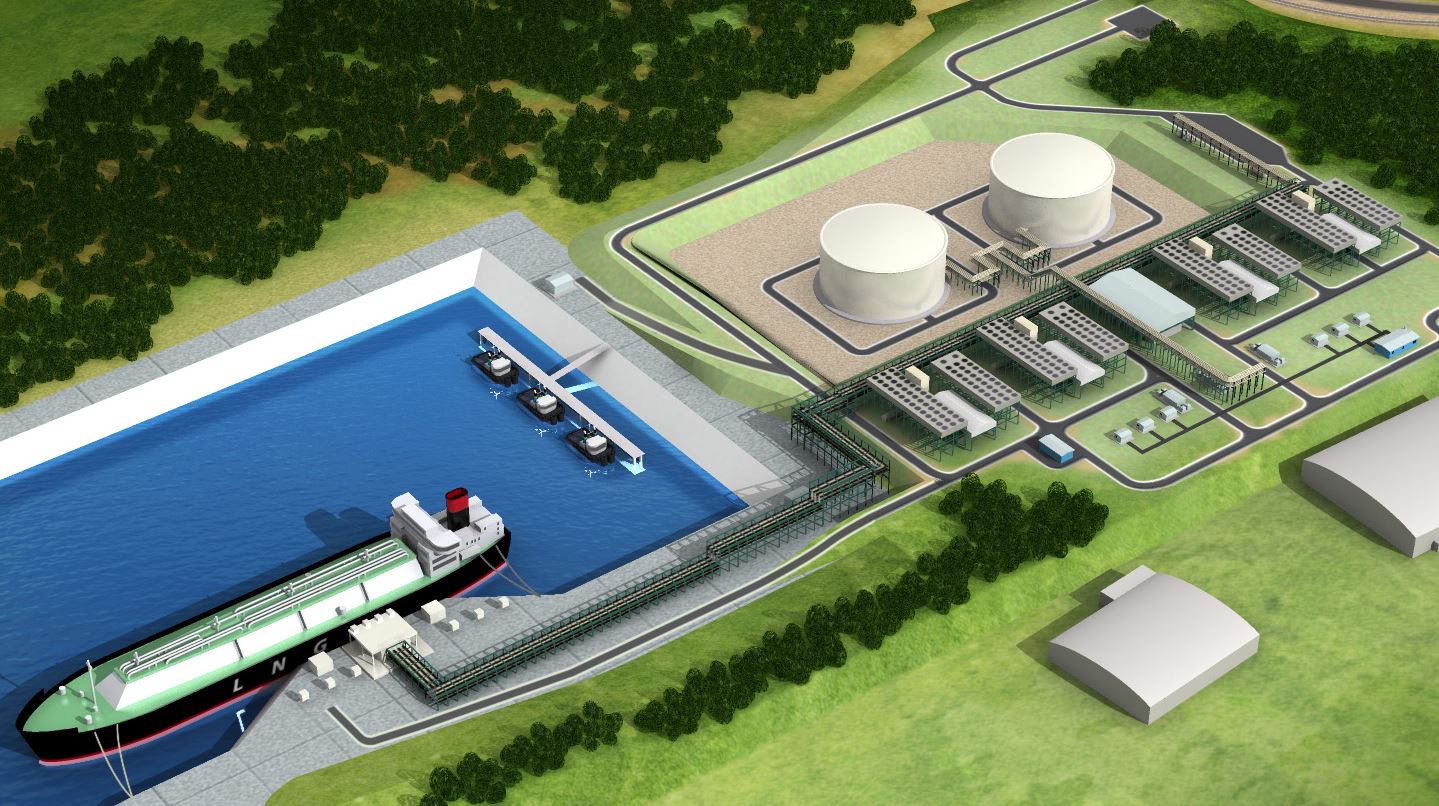Since Jordan Cove was built as an importing facility, American science and technology have turned the tables, making global export of American LNG a potential economic boon, not to mention a necessity for nations around the world seeking cheap, clean fuels for energy production. Radical special interests in Oregon have been defeated. Now it’s time for the federal government to get busy, and make Jordan Cove a reality.
by Marjorie Haun
The Jordan Cove project is a former natural gas import facility in Coos Bay, Oregon, which, if the government gets out of the way, will become an export facility, energizing flailing economies in areas including Western Colorado. OregonLive recently reported that local voters rejected a citizen initiative to shutter the facility and ban the transportation of fossil fuels. The article reads:
Voters in Coos County rejected a ballot measure Tuesday that would have banned the controversial Jordan Cove liquefied natural gas export terminal and its 231-mile feeder pipeline.
Measure 6-162, titled the Coos County Right to Sustainable Energy Future Ordinance, did not mention Jordan Cove specifically. But it took direct aim at the proposed Coos Bay terminal and pipeline by banning the development of “non-sustainable energy systems” and the bulk transportation of fossil fuels in the county.
Jordan Cove and its parent company, Calgary-based Veresen Inc., have spent the past dozen years and hundreds of millions of dollars trying to win approval for the project. Their application was rejected by federal regulators last year, but the company reapplied in January in hope that a fossil-fuel friendly Trump Administration could help them get a green light.
The group behind the ballot initiative to ban transportation of fossil fuels in the area, and in effect, shutter the the Jordan Cove liquefied natural gas (LNG) export project, appears to be lobbyists for ‘sustainable’ energy projects, aka green energy, which calls itself Coos Commons Protections Council. It’s clearly absurd to attempt to make the transportation of fossil fuels illegal, especially through a region with a history of doing just that, but their attempt is just another case of special interests using the power of law to pick winners and losers in energy markets. But rejection of this misguided and corrupt initiative is not just good news for Coos Bay, it may have positive implications for energy companies and workers in other regions of North America. The OregonLive report goes on to explain:
The Jordan Cove terminal and Pacific Connector pipeline are designed to pipe natural gas from Canada and the Western United States onto the North Spit of Coos Bay, super-chill it into a liquid, and load it aboard tankers for shipment to customers in Asia. Backers say it could be at least a $7.5 billion construction project, with thousands of construction jobs and 150 permanent jobs at the terminal.
Western Colorado is natural gas rich, with the northwest region of the state bearing some of the largest natural gas deposits in the world. But Obama-era federal regulations, and onerous state regulations–not to mention endless lawsuits by radical environmentalist special interests–have squelched the production of natural gas, and the potential economic boom that would come with a revival in exploration and extraction activities. That said, with the Bureau of Land Management refocusing its mission from Obama-era restrictions, to Trump-era responsible development and multi use, there is hope.
In spite of Obama’s denial of the Jordan Cove project, the citizens of Coos Bay and the Trump administration may help revive Western Colorado’s flagging energy sector. In December, Mesa County, Colorado Commissioner, Rose Pugliese wrote of the Obama action that put the brakes on the bipartisan Jordan Cove effort:
On Friday, December 9th, the Federal Energy Regulatory Commission (“FERC”) rejected a rehearing of its March decision denying permission to build a 234 mile-long interstate liquefied natural gas pipeline that would allow natural gas to be extracted in western Colorado before being exported to Coos Bay, Oregon. This proposal, known as the Jordan Cove project, would have created hundreds of local jobs and would have aided in stabilizing our rural Western economies for two decades.
There are several communities at each end of the pipeline, including Mesa County and many of our neighboring counties, which could have financially recovered if the Jordan Cove project was approved. Congress, and our federal agencies, has the power to determine if Mesa County and our neighboring counties have astrong and viable economy.
The federal government, once again, chose partisan politics over people. The economic attacks on rural Western counties continue.
Over the past year, many elected officials from Western Colorado and Oregon have put their hearts and souls into promoting this project. I was fortunate to be asked to testify before Congress’s House Subcommittee on Energy and Mineral Resources on the Opportunities and Challenges of Developing the Mancos Shale Resource, which included the support of the Jordan Cove project as an opportunity for our region.
Commissioner Bolton from Rio Blanco County and I recently visited Coos Bay to tour the Jordan Cove project site and have begun building solid relationships with local elected officials and business members in the Coos Bay area.
In the past four years that I have served as a Mesa County Commissioner, I have never seen the robust level of bi-partisan support for any project, let alone an energy project, in Colorado as I have seen for the Jordan Cove project. Jordan Cove has support at all levels of government, namely, Governor Hickenlooper, Senators Michael Bennet and Cory Gardner, and County Commissioners from several Colorado counties.
There has been bipartisan support for the Jordan Cove Project, and it enjoys broad support from elected leaders. Colorado’s Republican Congressional Delegation, including Congressman Scott Tipton, who represents virtually all of Western Colorado, is being urged to coordinate with the Trump Administration to revitalize the Jordan Cove project. Since Jordan Cove was built as an importing facility, American science and technology have turned the tables, making global export of American LNG a potential economic boon, not to mention a necessity for nations around the world seeking cheap, clean fuels for energy production. Radical special interests in Oregon have been defeated. Now it’s time for the federal government to get busy, and make Jordan Cove a reality.
[wp_ad_camp_1]
Free Range Report



